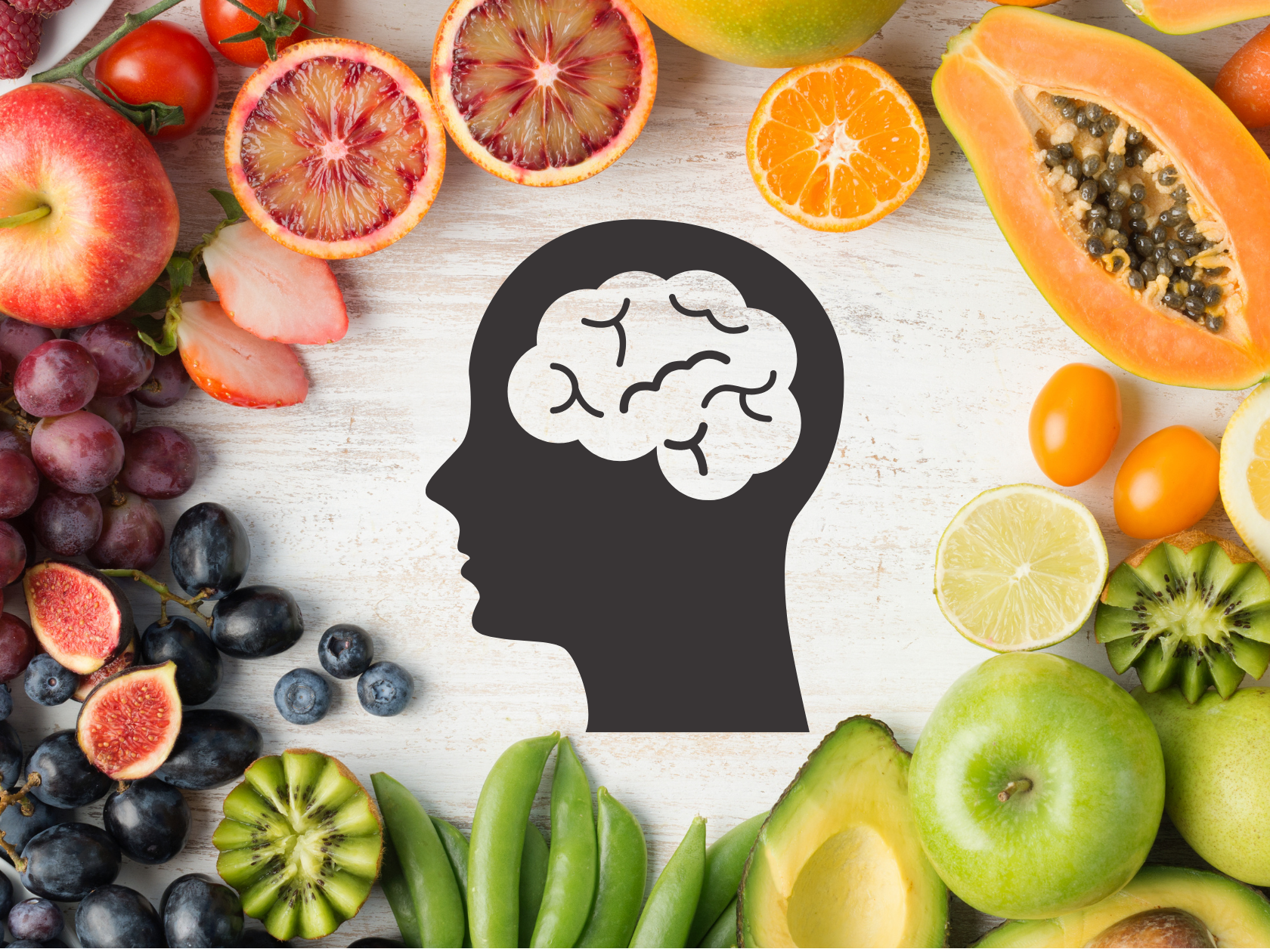STEM | February 21, 2024
UIUC Students Find Relationship Between Diet and Mental Health
Jenna Nabelsi

New evidence poses there may be a connection between what you eat and how you think. Credit: High Country Behavioral Health.
As many university students enter a new environment, they tend to be at risk of experiencing changes in mental health. While adapting to varied surroundings, it may be difficult to take care of oneself and maintain a balance of life and studies. One of the things that students struggle with the most is a healthy lifestyle. Healthy food options may not be as accessible and a student’s busy schedule may not allow time to eat and take care of one’s body.
A poor diet has tremendous effects on mental health and stress levels and it is imperative that everyone, especially students, understand the implications of a poor diet on mental, physical, and emotional health. To bring awareness to this important relationship, the University of Illinois at Urbana Champaign’s very own students at the Sweeney Lab began researching the effect of a neuronal pathway associated with diet on anxiety and mental health-related behaviors.
In a recently published paper, “Paraventricular Thalamic MC3R Circuits Link Energy Homeostasis with Anxiety-Related Behavior,” Dajin Cho, a 2nd-year Ph.D. student in Neuroscience, and Kyle O’Berry, B.S., highlight specific neurons called PVT MC3R that link energy status concerning diet with anxiety-related behavior. This poses the potential to understand and improve solutions to metabolic and mental issues such as anxiety or Anorexia nervosa. The possible benefits of this research are essential for students regardless of grade level since a healthier diet and mental state can lead to increased performance and cognitive function.
In the study, researchers acquired and prepped mice and put them through a series of behavioral and feeding experiments in which they measured the correlation between diet, anxiety, and health. Through analysis of the amount eaten, brain dissections, and other collected data, the results pointed toward a possible new understanding of the relationship of certain neurons and neuronal pathways to anxiety-related behavior. A specific neuron called PVT MC3R was found to directly affect a neurotransmitter’s (glutamate) levels which is related to memory, cognition, and mood regulation. It seems that the neuron is activated by either physical or chemical substances that create the feeling of satiety and fullness.
Through manipulating levels of sustenance consumed, it was determined that the activation of this neuron causes anxiety-inducing behavior, and inhibition of the neuron decreases anxiety-related behavior. So with this information, researchers concluded that to communicate the right message about energy state levels to certain parts of the brain, a well-rounded and balanced diet is necessary.

Gut-Brain Axis: displays a relationship between diet and mental health. Credit: “The Gut-Brain Connection & IBS” by Diana Reid.
This topic is being researched increasingly because it reveals that having good gut health and mental health can significantly improve one’s quality of life. It is very easy for students to have imbalanced meals that can contribute to an already high anxiety level due to busy schedules. By understanding this research and its implications for students, it can help them make better choices.
Whether it is meal prepping or fitness, students must take care of their bodies to potentially create lifestyle changes that will improve their quality of life and promote increased emotional stability and a higher level of cognition. In addition to lifestyle choices for students, this research has several implications for different medical therapies. If the specific neuronal pathway is understood, then targeted drug development can be created as well as the application of precision medicine, enabling physicians to create more individualized treatment plans.
References
___________________________________________________________________________________________________________
- Sogari G, Velez-Argumedo C, Gómez MI, Mora C. “College Students and Eating Habits: A Study Using An Ecological Model for Healthy Behavior.” Nutrients. 2018 Nov 23;10(12):1823. doi: 10.3390/nu10121823. PMID: 30477101; PMCID: PMC6315356.
- J. Neurosci 2023; 10.1523/JNEUROSCI.0704-23.2023
- Cho D, O’Berry K, Possa-Paranhos IC, Butts J, Palanikumar N, Sweeney P. “Paraventricular Thalamic MC3R Circuits Link Energy Homeostasis with Anxiety-Related Behavior.” J Neurosci. 2023 Sep 6;43(36):6280-6296. doi: 10.1523/JNEUROSCI.0704-23.2023. Epub 2023 Aug 17. PMID: 37591737; PMCID: PMC10490510.
- Sweeney Lab demonstrates how neurons with melanocortin-3 receptors regulate anxiety-related behavior. (n.d.). UIUC. Retrieved November 15, 2023, from https://mcb.illinois.edu/news/2023-10-12/sweeney-lab-demonstrates-how-neurons-melanocortin-3-receptor-regulate-anxiety
- Reid, D. (2023, September 7). The gut-brain connection & IBS: It’s Not All in your head. FODMAP Everyday. https://www.fodmapeveryday.com/the-gut-brain-connection-ibs-its-not-all-in-your-head/
About the author
Jenna Nabelsi is a freshman at UIUC. She is studying Molecular and Cellular Biology on the premedical track, aspiring to become a surgeon. Some of her favorite hobbies include tennis, music, and reading and her favorite spot on campus is BrewLab.